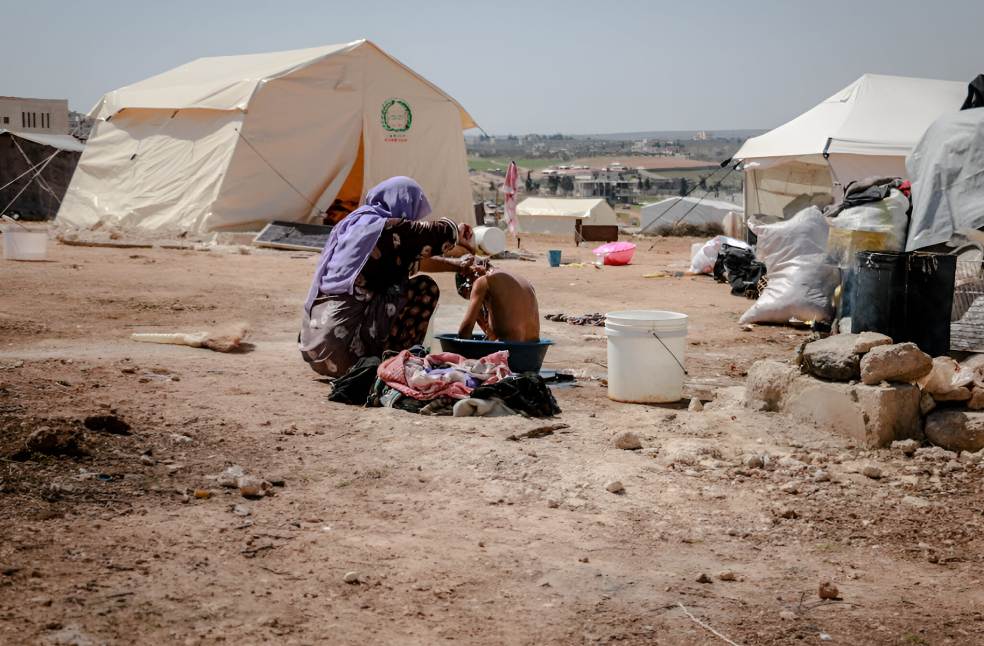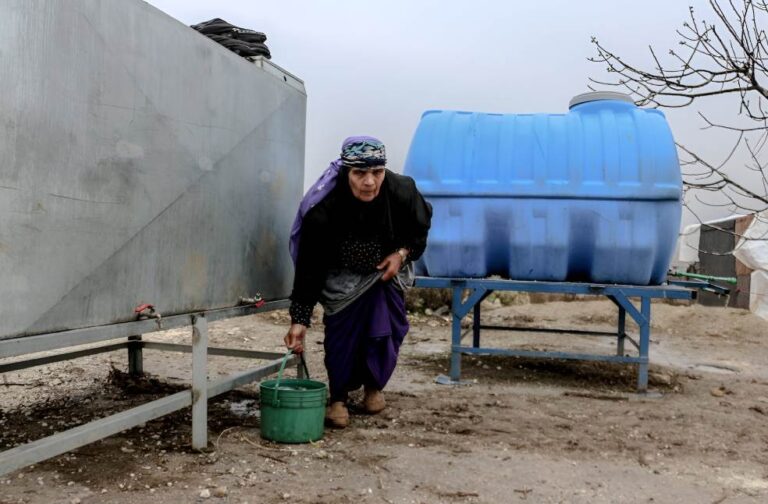Turkey: Air strikes carried out by Turkey in drought-stricken northeast Syria have left more than a million people without access to water and electricity, exacerbating an already dire humanitarian crisis, experts warn.
Since October 2019, Turkey has undertaken over 100 attacks on critical infrastructure, including oil fields, gas facilities, and power stations in the Kurdish-held Autonomous Administration of North and East Syria (AANES). These attacks have been linked to a broader conflict involving Turkey and Kurdish-led forces in the region, while also contributing to the suffering caused by severe drought and climate change.
The region’s primary water source, the Alouk water station, has been out of service since October 2023, following a Turkish attack on electricity infrastructure. With power outages widespread, civilians in Hassakeh province are reliant on tanker deliveries of water from distant sources, though the supply remains insufficient. People in cities like Hassakeh wait in desperation, some even resorting to fights over water.
Satellite images and on-the-ground reports confirm that Turkish airstrikes have caused significant damage to energy infrastructure, with entire areas experiencing power blackouts. The United Nations and humanitarian organisations accuse Turkey of intentionally targeting civilian infrastructure, raising the possibility that these actions could constitute war crimes under international law.

Turkey, however, insists that its military operations are focused on eliminating Kurdish militant groups, including the PKK, YPG, and PYD, which it considers terrorist organisations. The Turkish government argues that the attacks were aimed at strategic military targets, not civilians, and blames the region’s water scarcity on climate change and poorly maintained infrastructure.
The region has been grappling with an extreme drought since 2020, worsened by climate change, as well as years of civil war. The Khabour River, once a vital water source for Hassakeh, has dried up, leading to increased dependence on the Alouk station, now under Turkish control. Turkey’s repeated disruptions of this water supply have raised alarms, with independent legal experts suggesting the air strikes could be a violation of international law.
As Syria’s civil war continues and Turkey’s operations target Kurdish forces in the area, residents of northeast Syria feel increasingly abandoned. Many have already endured years of conflict and displacement, and now face a humanitarian catastrophe, with the basic necessity of water more precious than ever. International legal experts are calling for investigations into these attacks, as the crisis continues to unfold.



